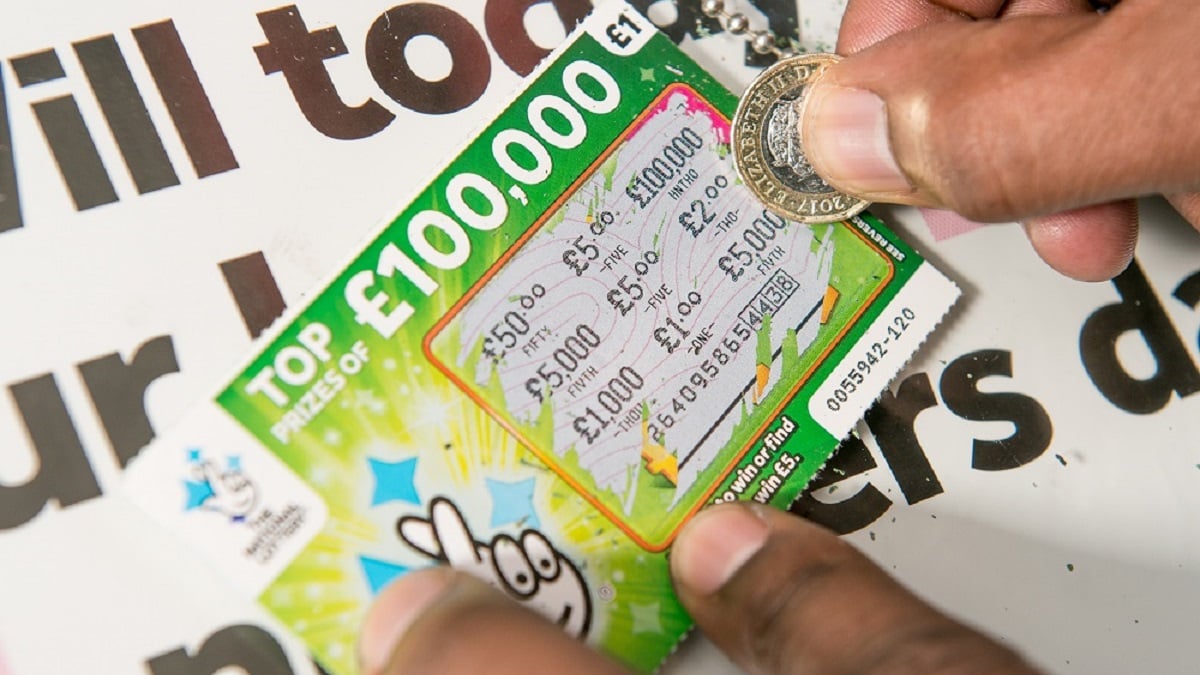UK Study Asserts Problem Gamblers More Likely to Give Children Scratch-Off Tickets
Posted on: August 30, 2022, 07:17h.
Last updated on: September 1, 2022, 03:12h.
New research in the UK shows how parents with gambling problems may foster similar traits in their children. The study, commissioned by British gambling charity GamCare, found that chronic gamblers have a tendency to imbue children with an interest in scratch-off tickets, beginning at a young age.

According to The Guardian, GamCare commissioned YouGov to explore a possible link between gambling parents and their children. The study determined that a certain percentage of the group has a predilection for sharing their affinity with their offspring.
Several other studies, including some conducted by the UK Gambling Commission (UKGC), have found that problem gambling in the UK is extremely low. However, it’s still a topic within the gaming industry that gets more attention than virtually any other.
Scratching the Surface
The YouGov study targeted 4,000 parents in the UK, some as young as 16 years old. Of these, 12% (480 respondents) had purchased scratch-offs for their children.
YouGov determined that, of that group, more than 38% of problem gamblers in the UK purchased scratch-offs for their children. This is higher than the 22% of those YouGov categorized as having a minor gambling problem and 5% of non-gamblers.
Therefore, GamCare concluded that parents who buy their children scratch-offs set them up to become gambling addicts later in life. On the other hand, the fact that 38% of parents had purchased scratch-offs means 62% didn’t.
In this way, some believe the GamCare study results are similar to those of studies debunking the theory that marijuana is a “gateway drug” to harder substances.
GamCare’s Alexa Roseblade stated that people “regularly” transition to “other forms of gambling” when they start young. At the same time, early exposure can also give parents – in this case, 62% of problem gambling parents – the ability to warn children of the hazards.
Lottery Sales on the Rise
The National Lottery reported total scratch-off ticket sales of £1.73 billion (US$2.03 billion) in the first half of the 2021-22 fiscal year. This was a year-on-year improvement of 1.6%. At the same time, the UK problem gambling rate decreased from 0.4% to 0.2%.
Lottery products are the most common form of gambling. Since COVID-19, sales in the segment have increased globally. In the US, for example, the lottery market value is growing at a compound annual growth rate of 5.96%, according to Technavio.
In the UK, lottery products and sports betting are the most popular options for gamblers. Gaming operators know this, and many are proactive in combating problem gambling. The National Library of Medicine has generated reports concluding that anything that stimulates a person can be addictive. Other studies have shown that it’s not gambling that is addictive but the stimulation itself.
There will always be those in any consumer segment who become addicts, which is also true of the YouGov research. However, just 27% of 14- and 15-year-olds who participated in the study said they had purchased scratch-offs with their families.
This amounts to only around 129 people, based on the numbers. Since UKGC studies put the gambling addiction rate at around 0.2%, that suggests less than three of those people might develop an unhealthy relationship with scratch-offs.
Related News Articles
Scotland Wants University Students to Weigh In on Gambling Policies
Latest UK Youth Gambling Study May Not Present the Facts Objectively
Allwyn Completes Acquisition of UK Lottery Operator Camelot UK
Most Popular
Genovese Capo Sentenced for Illegal Gambling on Long Island
NBA Referees Expose Sports Betting Abuse Following Steve Kerr Meltdown
UPDATE: Former Resorts World & MGM Grand Prez Loses Gaming License
VEGAS MYTHS RE-BUSTED: The Traveling Welcome to Las Vegas Sign
Most Commented
-
UPDATE: Whiskey Pete’s Casino Near Las Vegas Closes
— December 20, 2024 — 32 Comments -
Caesars Virginia in Danville Now Accepting Hotel Room Reservations
— November 27, 2024 — 9 Comments -
UPDATE: Former Resorts World & MGM Grand Prez Loses Gaming License
— December 19, 2024 — 8 Comments -
FTC: Casino Resort Fees Must Be Included in Upfront Hotel Rates
— December 17, 2024 — 7 Comments
















No comments yet